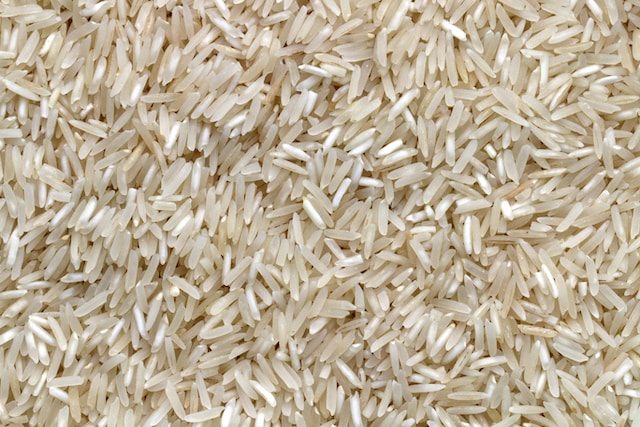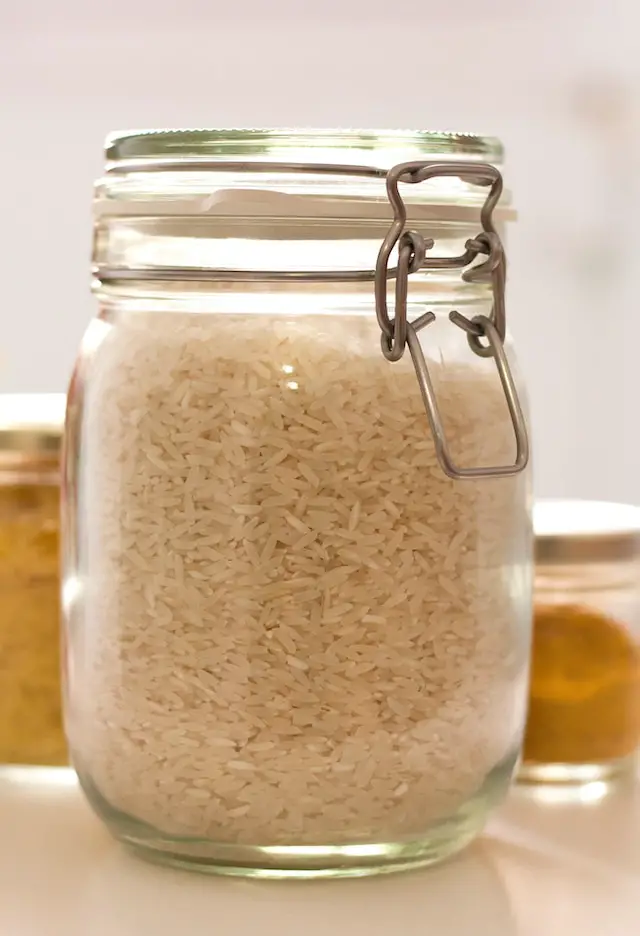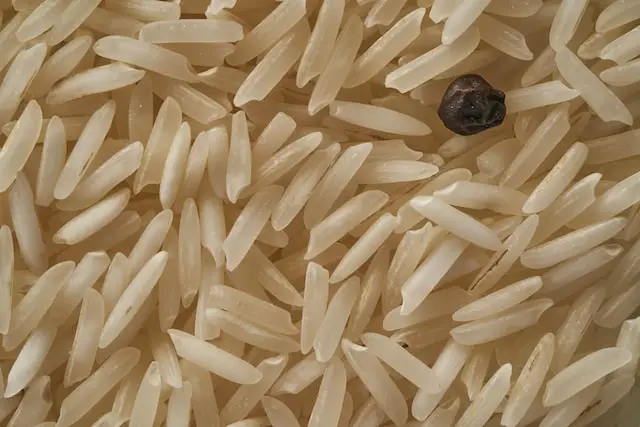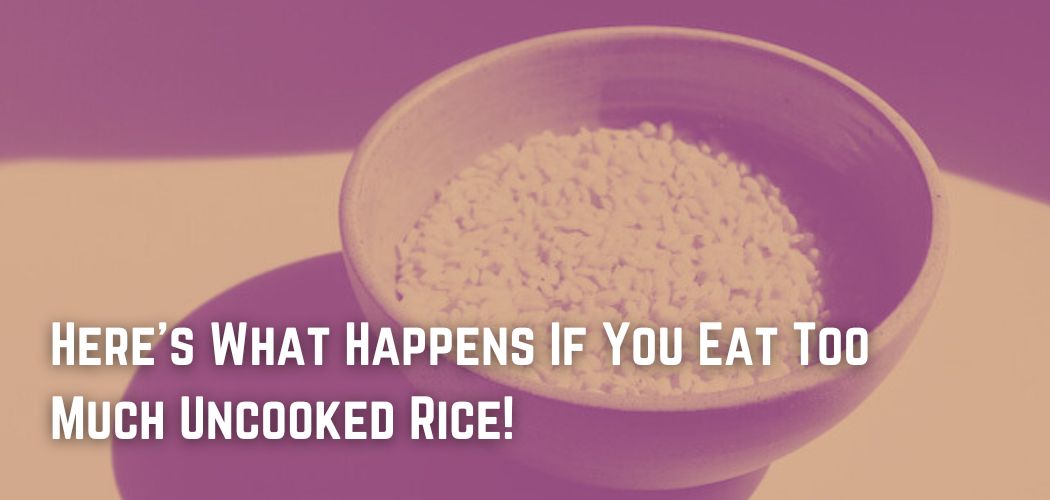Uncooked rice is a staple food for millions of people around the world, but consuming too much of it can have negative consequences on your health. In this article, we will explore what happens if you eat too much uncooked rice.
Contents
Hard To Digest
Firstly, uncooked rice is hard to digest. When we eat uncooked rice, our digestive system struggles to break down the hard outer layer of the grain. This can lead to digestive problems such as bloating, gas, and constipation.
High In Arsenic
Secondly, uncooked rice can contain high levels of arsenic. Arsenic is a naturally occurring element that is found in soil and water. Rice is particularly susceptible to absorbing arsenic from the soil and water in which it is grown.
Consuming too much arsenic can lead to health problems such as cancer, skin lesions, cardiovascular disease, and developmental problems in children.
Therefore, it is important to ensure that you are consuming rice that has been properly cooked and washed to remove any excess arsenic.
May Contain Bacteria
Thirdly, uncooked rice may contain harmful bacteria such as Bacillus cereus. This bacterium is commonly found in rice and can cause food poisoning if consumed in large quantities.

Symptoms of Bacillus cereus food poisoning include nausea, vomiting, stomach cramps, and diarrhea. In severe cases, it can also cause fever and dehydration. Therefore, it is important to properly cook rice to ensure that any harmful bacteria are eliminated.
Nutrient Deficiency
Lastly, consuming too much uncooked rice can lead to a nutrient deficiency. Rice is a good source of carbohydrates, but it lacks essential nutrients such as protein, fiber, and vitamins.
When we eat too much uncooked rice, we are not getting the essential nutrients that our body needs to function properly. This can lead to health problems such as weakness, fatigue, and anemia.
Health Benefits Of Cooked Rice
Cooked rice, on the other hand, offers several health benefits. Here are some of the health benefits of consuming cooked rice:
- Fiber: Cooked rice contains fiber, which can help regulate digestion, lower cholesterol levels, and reduce the risk of heart disease.
- Vitamins and minerals: Cooked rice contains essential vitamins and minerals such as vitamin B, iron, and magnesium, which are important for maintaining a healthy body.
- Gluten-free: Rice is naturally gluten-free, making it a good option for people with gluten sensitivities or celiac disease.
- Low in fat: Cooked rice is low in fat, making it a good option for people who are trying to maintain a healthy weight.
Consuming too much uncooked rice can have negative consequences on your health, including digestive problems, exposure to arsenic, bacterial infections, and nutrient deficiencies.
It is important to properly cook rice to ensure that it is safe to eat and offers the health benefits that cooked rice can provide. If you experience any adverse symptoms after consuming uncooked rice, it is important to seek medical attention immediately.
Is It Safe To Eat Raw Rice?
While uncooked rice is not toxic, it is not recommended to eat it because it can cause digestive problems and even lead to food poisoning. Uncooked rice contains a type of bacteria called Bacillus cereus that can survive on the rice until it is cooked.
When the rice is cooked, the heat kills the bacteria, making it safe to eat. However, if you eat uncooked rice, the bacteria can survive in your digestive system and potentially cause food poisoning.
Additionally, uncooked rice contains phytic acid, which can reduce the absorption of important minerals such as iron and zinc. Phytic acid is broken down during the cooking process, so cooked rice is a better source of these nutrients.

It is also worth noting that some types of rice, such as brown rice, may contain higher levels of arsenic, a toxic substance that can be harmful to your health if consumed in large quantities.
Cooking rice in excess water and draining it before consuming can help reduce the arsenic levels.
It is not safe to eat uncooked rice due to the risk of bacterial contamination and the presence of phytic acid, which can interfere with nutrient absorption. It is important to always cook rice thoroughly before consuming it to ensure it is safe and nutritious.
Nutritional Information
Rice is an excellent source of carbohydrates, vitamins, and minerals. Here’s a breakdown of the nutritional information of rice per 100 grams:
- Calories: 130
- Carbohydrates: 28 grams
- Protein: 2.7 grams
- Fat: 0.3 grams
- Fiber: 0.3 grams
- Sugar: 0.1 grams
- Sodium: 1 milligram
In addition to these macronutrients, rice also contains essential vitamins and minerals such as:
- Thiamine (B1): 6% of the recommended daily intake (RDI)
- Niacin (B3): 2% RDI
- Vitamin B6: 4% RDI
- Folate (B9): 1% RDI
- Iron: 2% RDI
- Magnesium: 3% RDI
- Phosphorus: 4% RDI
- Potassium: 2% RDI

It’s important to note that the nutritional content of rice can vary depending on the type of rice, its processing, and cooking method. Brown rice, for example, has more fiber and nutrients than white rice. Additionally, enriched rice may have added vitamins and minerals.
Conclusion
While rice is a nutritious and important staple food in many parts of the world, eating uncooked rice is not recommended.
Raw rice contains a substance called phytic acid, which can inhibit the absorption of important nutrients in the body. Additionally, consuming uncooked rice can also increase the risk of food poisoning due to the presence of harmful bacteria or toxins.
It is important to cook rice thoroughly before consuming it to ensure that it is safe to eat and that its full nutritional benefits can be obtained.
If you have a preference for crunchy rice, try cooking it to a slightly higher temperature or using a specific rice variety that has a firmer texture.

